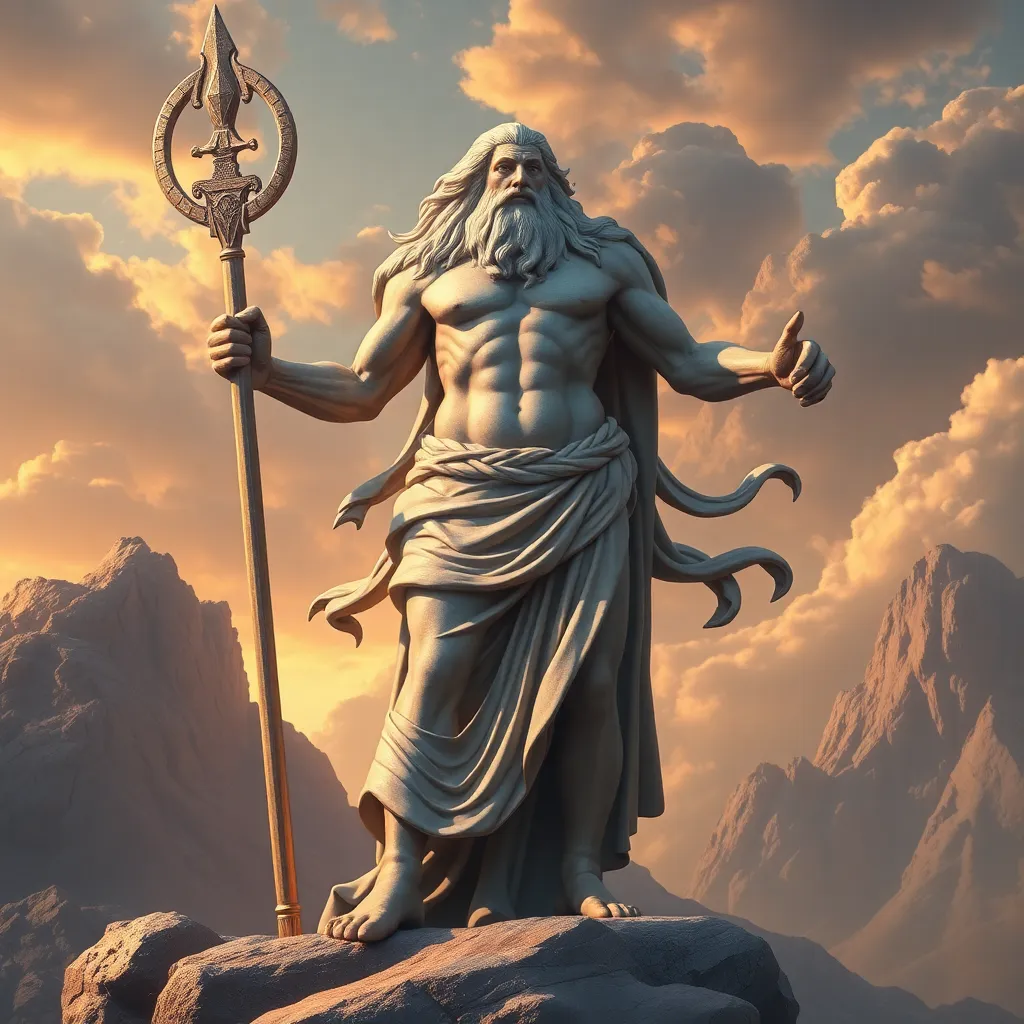The Titan Iapetus: Father of Prometheus and Epimetheus
I. Introduction
Iapetus is a significant figure in Greek mythology, recognized as one of the Titans, the primordial deities that predate the Olympian gods. His name is often associated with themes of mortality and human destiny, marking him as a Titan of profound importance. Iapetus’s legacy is particularly pronounced through his children, Prometheus and Epimetheus, who play pivotal roles in several myths that explore the complexities of humanity, creation, and defiance against divine authority.
II. The Role of Titans in Greek Mythology
The Titans were the offspring of Uranus (Sky) and Gaia (Earth), forming a generation of gods that shaped the early cosmos. They are often seen as the predecessors to the Olympians, who later overthrew them in the epic battle known as the Titanomachy.
- Lineage: The Titans include notable figures such as Cronus, Rhea, Oceanus, and Hyperion, each representing different aspects of the world.
- Importance of Iapetus: Among the Titans, Iapetus stands out as the father of two of the most significant mythological characters, highlighting his relevance in the mythological narrative.
- Titanomachy: Iapetus’s involvement in this monumental conflict is often overshadowed by his descendants’ actions, but it set the stage for the rise of the Olympians.
III. Iapetus: The Titan of Mortality
Iapetus is often referred to as the Titan of mortality, with his name meaning “the one who pierces.” This association lends him a symbolic connection to the human condition, embodying themes of life, death, and the ephemeral nature of existence.
- Symbolism: Iapetus’s role as a symbol of mortality highlights the inevitability of death and the transient nature of human life.
- Comparison with Other Titans: Unlike many Titans who represent natural phenomena or abstract concepts, Iapetus’s focus on mortality offers a unique perspective on the human experience.
IV. The Birth and Significance of Prometheus
Prometheus is one of the most celebrated figures in Greek mythology, known for his intelligence and defiance against the gods. He is often depicted as a champion of humanity, responsible for creating mankind and bestowing upon them the gift of fire.
- Creation of Humanity: According to myth, Prometheus shaped humans from clay, imbuing them with life and intellect.
- Stealing Fire: His most famous act of defiance was stealing fire from the gods and giving it to humanity, an act that symbolizes enlightenment and the quest for knowledge.
- Implications for Mankind: This act not only empowered humanity but also led to severe consequences for Prometheus, illustrating the complex relationship between humans and the divine.
V. The Role of Epimetheus: The Afterthought
Epimetheus, whose name means “afterthought,” contrasts sharply with his brother Prometheus. While Prometheus is known for his foresight and planning, Epimetheus is characterized by his impulsive and often reckless nature.
- Character Traits: Epimetheus is often portrayed as naive and foolish, acting without considering the consequences of his actions.
- Creation of Animals: He is credited with distributing traits to animals, yet he neglected to reserve any gifts for humanity, setting the stage for future struggles.
- Pandora’s Relationship: Epimetheus’s story is tied to Pandora, the first woman created by the gods. Despite warnings, he accepted her, resulting in the unleashing of woes upon humanity, emphasizing his role as the afterthought in key decisions.
VI. The Legacy of Iapetus and His Children
The tales of Prometheus and Epimetheus have left a lasting impact on Greek mythology and beyond, serving as moral and cautionary tales that resonate through the ages.
- Impact on Mythology: The narratives surrounding Iapetus’s children reflect themes of rebellion, responsibility, and the human condition.
- Moral Lessons: Prometheus’s defiance teaches the value of knowledge and the consequences of overstepping bounds, while Epimetheus’s carelessness serves as a warning against thoughtlessness.
- Influence on Culture: Their stories have inspired countless works of literature and art, showcasing the enduring relevance of these mythological figures.
VII. Iapetus in Contemporary Culture
In modern media, Iapetus and his children continue to be represented in various forms, sustaining the fascination with Greek mythology.
- Representation in Media: Iapetus is sometimes referenced in literature, films, and games, often symbolizing the themes of fate and mortality.
- Literary Legacy: The stories of Prometheus and Epimetheus have influenced numerous authors and artists, from Mary Shelley’s “Frankenstein” to contemporary cinema.
- Fascination with Myth: The enduring appeal of mythological figures like Iapetus reflects humanity’s continual exploration of existential themes and moral dilemmas.
VIII. Conclusion
Iapetus stands as a significant figure in Greek mythology, not only as a Titan but also as the father of two influential characters whose stories have shaped human understanding of morality, responsibility, and the consequences of our actions.
Reflecting on the enduring themes of his myths, we see how Iapetus’s legacy continues to resonate today, prompting us to consider our own relationship with knowledge, power, and the human condition. The relevance of Iapetus and his children continues to inspire, reminding us that mythology is a lens through which we can explore the complexities of existence.




